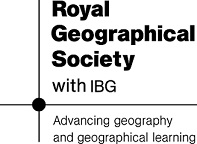Due to the pandemic and the difficulties of doing ‘fieldwork’, you might find yourself working predominantly with secondary rather than primary data for your dissertation – visual materials, texts, adverts, films, etc. The below readings provide some guidance on or examples of this kind of analysis.
Aitken, S. C. (2013). Textual analysis: reading culture and context. Methods in Human Geography: A guide for students doing a research project, pp. 233.
Bartram, R. (2010) Geography and the Interpretation of Visual Imagery, In Clifford et al., Key Methods in Geography, London: Sage.
Bhattacharyya, D. P. (1997). Mediating India: An analysis of a guidebook. Annals of Tourism Research, 24(2), pp. 371-389. DOI: 10.1016/S0160-7383(97)80007-2
Bishop, L. (2007). A reflexive account of reusing qualitative data: Beyond primary/secondary dualism. Sociological Research Online, 12(3), pp. 43-56. DOI: 10.5153/sro.1553
Cosgrove, D., & Daniels, S. (Eds.). 1988. The iconography of landscape: essays on the symbolic representation, design and use of past environments (Vol. 9). Cambridge University Press.
Daniels, S. (1993). Fields of vision: landscape imagery and national identity in England and the United States (pp. 112-45). Cambridge: Polity Press.
Dittmer, J. (2005). Captain America’s empire: Reflections on identity, popular culture, and post-9/11 geopolitics. Annals of the Association of American Geographers, 95(3), pp. 626-643. DOI: 10.1111/j.1467-8306.2005.00478.x
Dittmer, J. (2011). Captain Britain and the narration of nation. Geographical Review, 101(1), pp. 71-87. DOI: 10.1111/j.1931-0846.2011.00073.x
Dodd, K. & Dodd, P. (2004) From the East End to EastEnders: representations of the working class 1890-1990, In D. Strinati & S. Wagg (Eds.) Come on down? Popular Media Culture in Post-War Britain, Routledge, pp. 125-141.
Dodds, K. (1996). The 1982 Falklands War and a critical geopolitical eye: Steve Bell and the if… cartoons. Political Geography, 15(6-7), pp. 571-592. DOI: 10.1016/0962-6298(96)00002-9
Domosh, M. (2003). Selling America: advertising, national identity and economic empire in the late nineteenth century, In Blunt et al. (Eds.) Cultural Geography in Practice, Oxford: Hodder Arnold, pp. 141-153
Dwyer, C., & Davies, G. (2010). Qualitative methods III: animating archives, artful interventions and online environments. Progress in Human Geography, 34(1), pp. 88-97. DOI: 10.1177/0309132508105005
Gallwey, A. (2013). The rewards of using archived oral histories in research: The case of the Millennium Memory Bank. Oral History, 41(1), pp. 37-50. www.jstor.org/stable/41806380
Goldman, R. (1992; 2005). Reading ads socially. Routledge.
Hones, S. (2008). Text as it happens: Literary geography. Geography Compass, 2(5), pp. 1301-1317. DOI: 10.1111/j.1749-8198.2008.00143.x
Hones, S. (2010). Teaching and learning guide for: Text as it happens–literary geography. Geography Compass, 4(1), pp. 61-66. DOI: 10.1111/j.1749-8198.2009.00291.x
Lyon, D., & Crow, G. (2012). The challenges and opportunities of re-studying community on Sheppey: young people’s imagined futures. The Sociological Review, 60(3), pp. 498-517. DOI: 10.1111/j.1467-954X.2012.02096.x
Lyon, D., Morgan Brett, B., & Crow, G. (2012). Working with material from the Sheppey archive. International Journal of Social Research Methodology, 15(4), pp. 301-309. DOI: 10.1080/13645579.2012.688314
Lutz, C. A., & Collins, J. L. (1993). Reading National Geographic (Vol. 59). Chicago: University of Chicago Press.
Kinsman, P. (1995). Landscape, race and national identity: the photography of Ingrid Pollard. Area, pp. 300-310. www.jstor.org/stable/20003600
May, J. (2003).The view from the streets: Geographies of homelessness in the British newspaper press, In Blunt el al (Eds.) Cultural Geography in Practice, Oxford: Hodder Arnold, pp. 23-38.
Mills, S. (2012) Young ghosts: ethical and methodological issues of historical research in children’s geographies, Children’s Geographies, 10(3), pp. 357-363, DOI: 10.1080/14733285.2012.693838
Mills, S. (2013). Cultural–historical geographies of the archive: fragments, objects and ghosts. Geography Compass, 7(10), pp. 701-713. DOI: 10.1111/gec3.12071
Monaco, J. (2009). How to read a film: The art, technology, language, history, and theory of film and media. New York: Oxford University Press.
Pinder, D. (2003). Mapping Worlds: cartography and the politics of representation, in Blunt et al. (Eds) Cultural Geography in Practice, Oxford: Hodder Arnold, pp. 172-190.
Rose, G. (1996). Teaching visualised geographies: towards a methodology for the interpretation of visual materials. Journal of Geography in Higher Education, 20(3), pp. 281-294. DOI: 10.1080/03098269608709373
Rose, G. (2000). Practising photography: an archive, a study, some photographs and a researcher. Journal of historical geography, 26(4), pp. 555-571. DOI: 10.1006/jhge.2000.0247
Rose, G. (2001; 2016). Visual methodologies: An introduction to researching with visual materials. London: Sage.
Sharp, J. P. (2000). Towards a critical analysis of fictive geographies. Area, 32(3), pp. 327-334. DOI: 10.1111/j.1475-4762.2000.tb00145.x
Watters, E. C., Cumming, S., & Caragata, L. (2018). The Lone Mother Resilience Project: A Qualitative Secondary Analysis. In Forum Qualitative Sozialforschung/Forum: Qualitative Social Research, 19(2). DOI: 10.17169/fqs-19.2.2863
